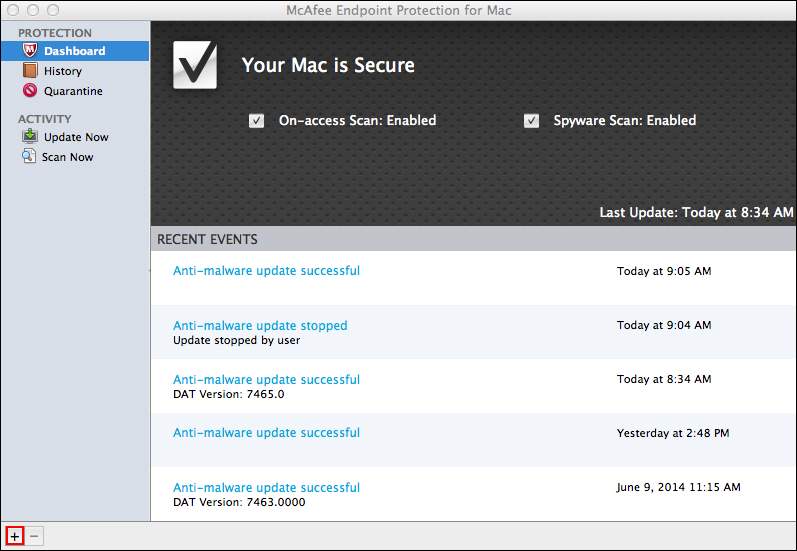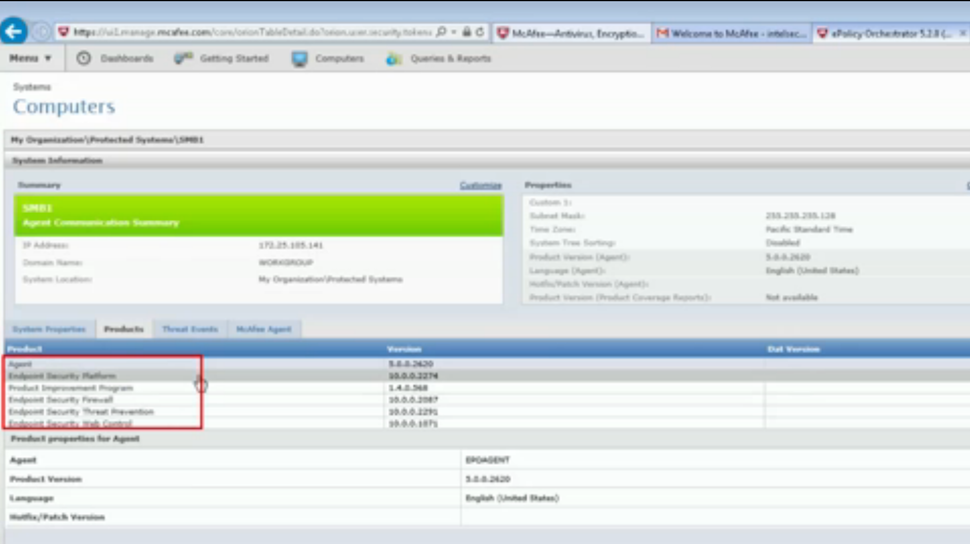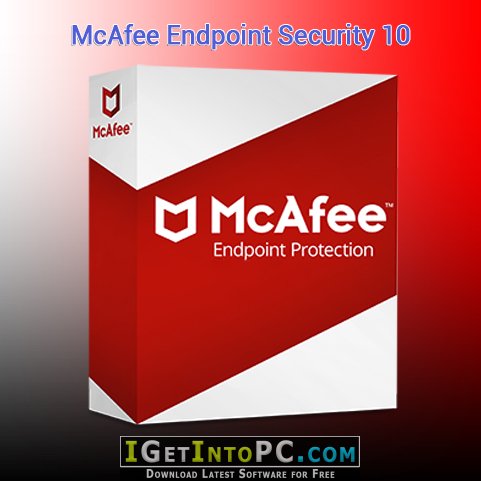
- #MCAFEE ENDPOINT PROTECTION SOFTWARE AUTHORITATIVE SOURCES ARCHIVE#
- #MCAFEE ENDPOINT PROTECTION SOFTWARE AUTHORITATIVE SOURCES UPGRADE#
- #MCAFEE ENDPOINT PROTECTION SOFTWARE AUTHORITATIVE SOURCES VERIFICATION#
NOTE: this may later be SPLIT into multiple CVEs if additional information is published showing that the error occurred independently in different TAR parser implementations.
#MCAFEE ENDPOINT PROTECTION SOFTWARE AUTHORITATIVE SOURCES ARCHIVE#
01, Panda Antivirus 10.0.2.7, PC Tools AntiVirus 7.0.3.5, Rising Antivirus 22.83.00.03, Sophos Anti-Virus 4.61.0, AVEngine 20101.3.0.103 in Symantec Endpoint Protection 11, Trend Micro AntiVirus 9.1, Trend Micro HouseCall 9.1, VBA32 3.12.14.2, and VirusBuster 13.6.151.0 allows remote attackers to bypass malware detection via a TAR archive entry with a length field corresponding to that entire entry, plus part of the header of the next entry. 0 in Microsoft Security Essentials 2.0, NOD32 Antivirus 5795, Norman Antivirus 6.06.12, nProtect Anti-Virus. 0 and 5.0.677.0, AVG Anti-Virus 10., Bitdefender 7.2, Quick Heal (aka Cat QuickHeal) 11.00, ClamAV 0.96.4, Command Antivirus 5.2.11.5, Comodo Antivirus 7424, Emsisoft Anti-Malware 5.1.0.1, F-Prot Antivirus 4.6.2.117, F-Secure Anti-Virus 0.0, Fortinet Antivirus 4.2.254.0, G Data AntiVirus 21, Ikarus Virus Utilities T3 Command Line Scanner 1.1.97.0, Jiangmin Antivirus 13.0.900, K7 AntiVirus, Kaspersky Anti-Virus 7.0.0.125, McAfee Anti-Virus Scanning Engine 5.4, McAfee Gateway (formerly Webwasher) 2010.1C, Antimalware Engine. The TAR file parser in AhnLab V3 Internet Security 2011.01.18.00, Avira AntiVir 7.11.1.163, Antiy Labs AVL SDK 2.0.3.7, avast! Antivirus. NOTE: this may later be SPLIT into multiple CVEs if additional information is published showing that the error occurred independently in different Gzip parser implementations. tar.gz file with multiple compressed streams. The Gzip file parser in AVG Anti-Virus 10., Bitdefender 7.2, Command Antivirus 5.2.11.5, Emsisoft Anti-Malware 5.1.0.1, F-Secure Anti-Virus 0.0, Fortinet Antivirus 4.2.254.0, Ikarus Virus Utilities T3 Command Line Scanner 1.1.97.0, Jiangmin Antivirus 13.0.900, K7 AntiVirus, Kaspersky Anti-Virus 7.0.0.125, McAfee Anti-Virus Scanning Engine 5.4, McAfee Gateway (formerly Webwasher) 2010.1C, NOD32 Antivirus 5795, Norman Antivirus 6.06.12, Rising Antivirus 22.83.00.03, Sophos Anti-Virus 4.61.0, AVEngine 20101.3.0.103 in Symantec Endpoint Protection 11, Trend Micro AntiVirus 9.1, Trend Micro HouseCall 9.1, and VBA32 3.12.14.2 allows remote attackers to bypass malware detection via a. OpenSSL 1.0.2 is not impacted by this issue.
#MCAFEE ENDPOINT PROTECTION SOFTWARE AUTHORITATIVE SOURCES UPGRADE#
Users of these versions should upgrade to OpenSSL 1.1.1k. OpenSSL versions 1.1.1h and newer are affected by this issue.
#MCAFEE ENDPOINT PROTECTION SOFTWARE AUTHORITATIVE SOURCES VERIFICATION#
In order to be affected, an application must explicitly set the X509_V_FLAG_X509_STRICT verification flag and either not set a purpose for the certificate verification or, in the case of TLS client or server applications, override the default purpose. A purpose is set by default in libssl client and server certificate verification routines, but it can be overridden or removed by an application.

Therefore, where a purpose is set the certificate chain will still be rejected even when the strict flag has been used.

All of the named "purpose" values implemented in libcrypto perform this check. If a "purpose" has been configured then there is a subsequent opportunity for checks that the certificate is a valid CA. This effectively bypasses the check that non-CA certificates must not be able to issue other certificates.

An error in the implementation of this check meant that the result of a previous check to confirm that certificates in the chain are valid CA certificates was overwritten. Starting from OpenSSL version 1.1.1h a check to disallow certificates in the chain that have explicitly encoded elliptic curve parameters was added as an additional strict check.

The X509_V_FLAG_X509_STRICT flag enables additional security checks of the certificates present in a certificate chain.


 0 kommentar(er)
0 kommentar(er)
